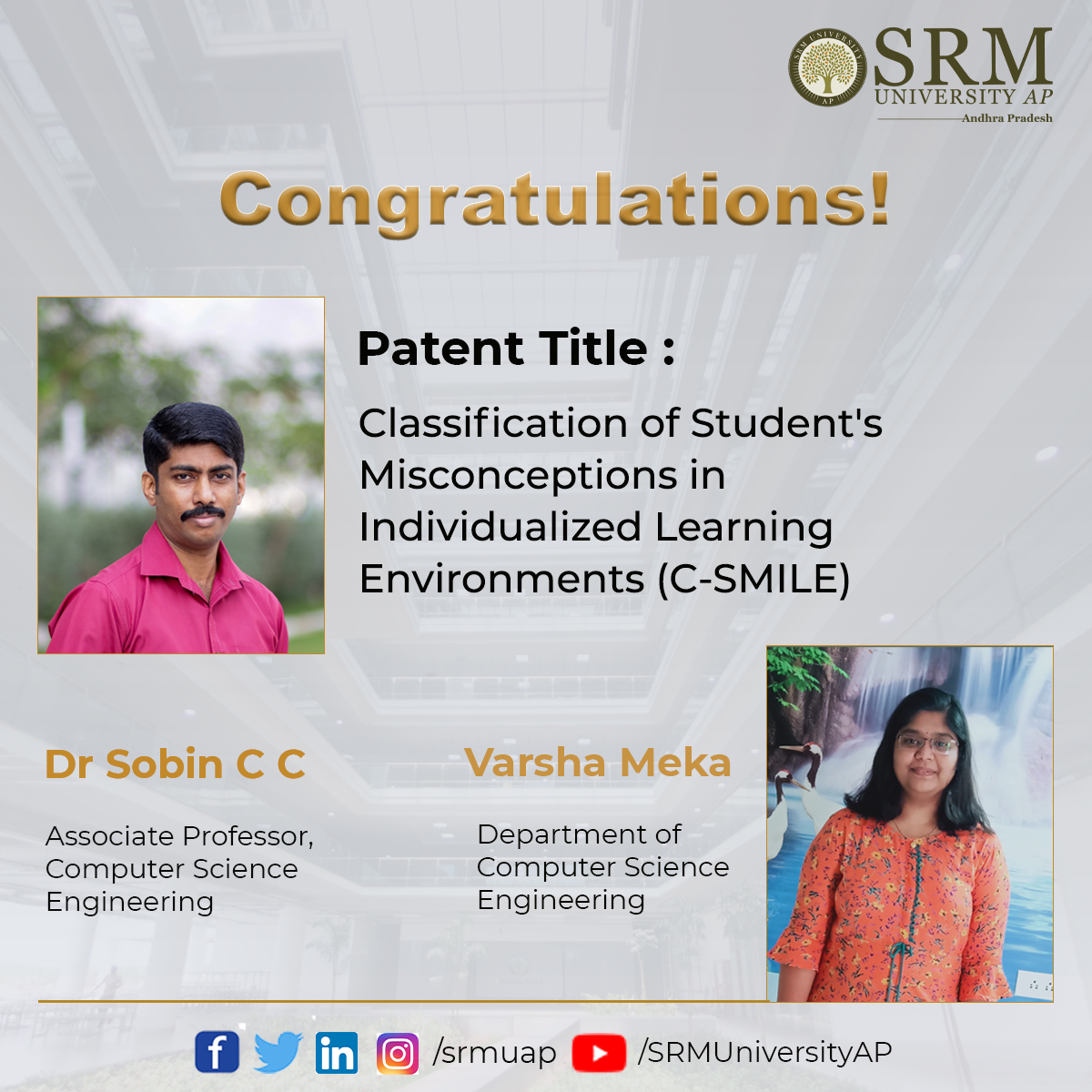
“The correct analogy for the mind is not a vessel that needs filling, but wood that needs igniting” – Plutarch
Where would you go to get the most appropriate feedback to improve your learning? Whom would you approach? An active learner requires continuous assessment. Exposure to relevant remarks can make a significant impact in the learning output. Choosing the right source of feedback is important to locate your position in the learning ecosystem. This is where C-SMILE enters the frame.
The Department of Computer Science and Engineering is delighted to inform you that the patent application (202241010415) entitled ‘Classification of Student’s Misconceptions in Individualized Learning Environments (C-SMILE)’ got published. The patent application was submitted by Associate professor Dr Sobin C C and BTech final year student Meka Varsha as part of the Capstone Project.
C-SMILE is an innovative platform which allows students to take assessment and receive feedback based on their performance and misconceptions. This targets to refine their conceptual and individualised learning. The platform offers the benefits of automated identification of misconceptions and classification of their level of conceptual clarity. This eventually leads to pertinent feedbacks and ensures quality learning. It also helps engineering educators to classify their students into different categories based on their level of conceptual clarity. Short quizzes and multi-level assessments can utilise the objective of this platform.
Dr Sobin C C and Meka Varsha have collaborated with Mr Subheesh N P from IIT Madras and Mr Jahfar Ali from IIT Hyderabad as part of this work. The team has already published 2 conference papers. One of them is in the prestigious IEEE Global Engineering Education Conference (EDUCON 2022), which is the flagship conference of IEEE Education Society.
The researchers are now working on to extend this concept to incorporate Bloom’s taxonomy to formulate more specific questions based on their level in the cognitive domain.

